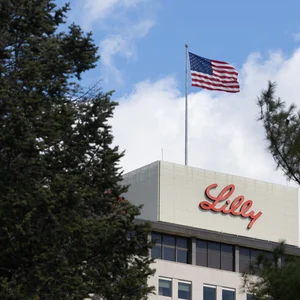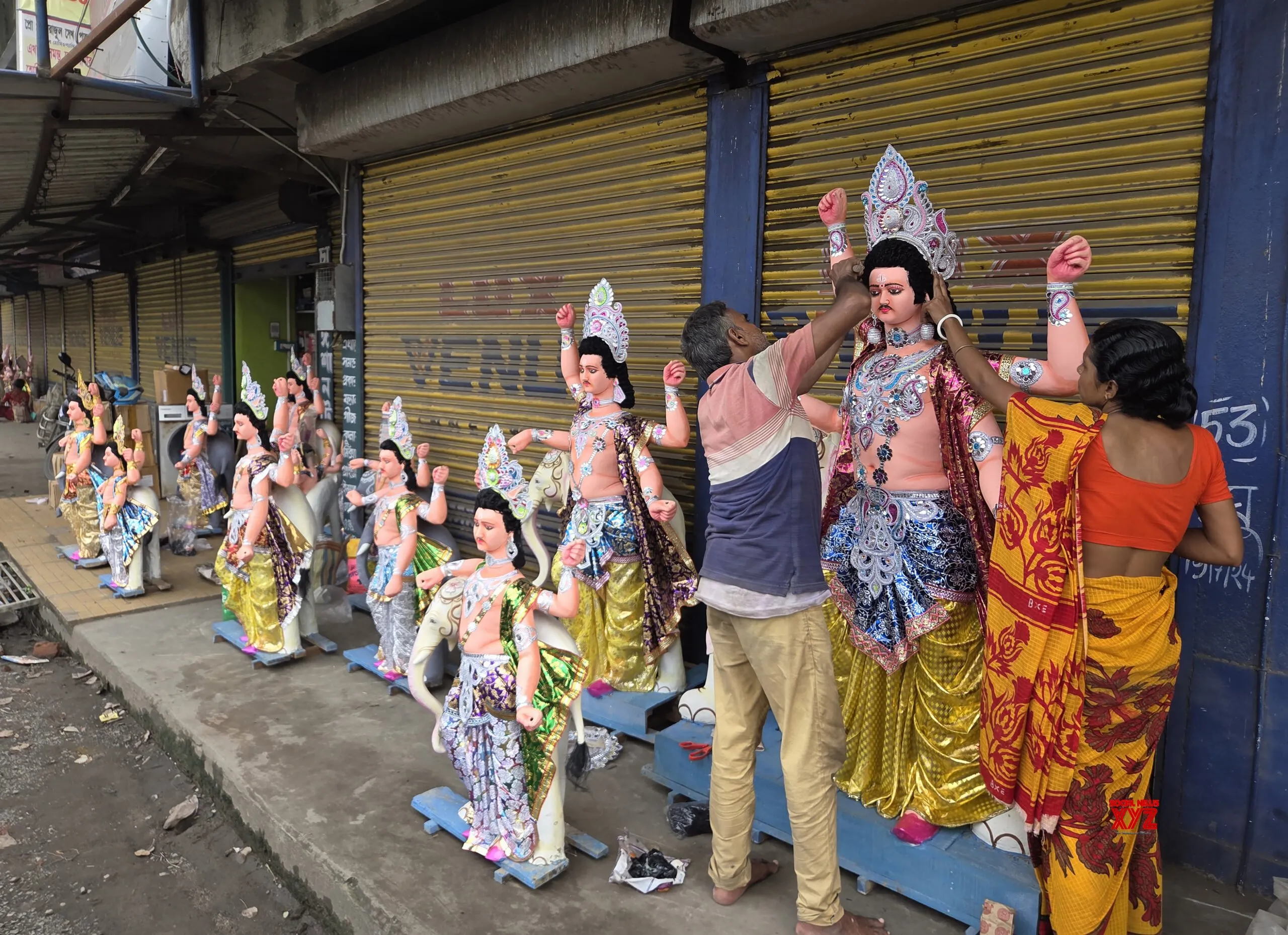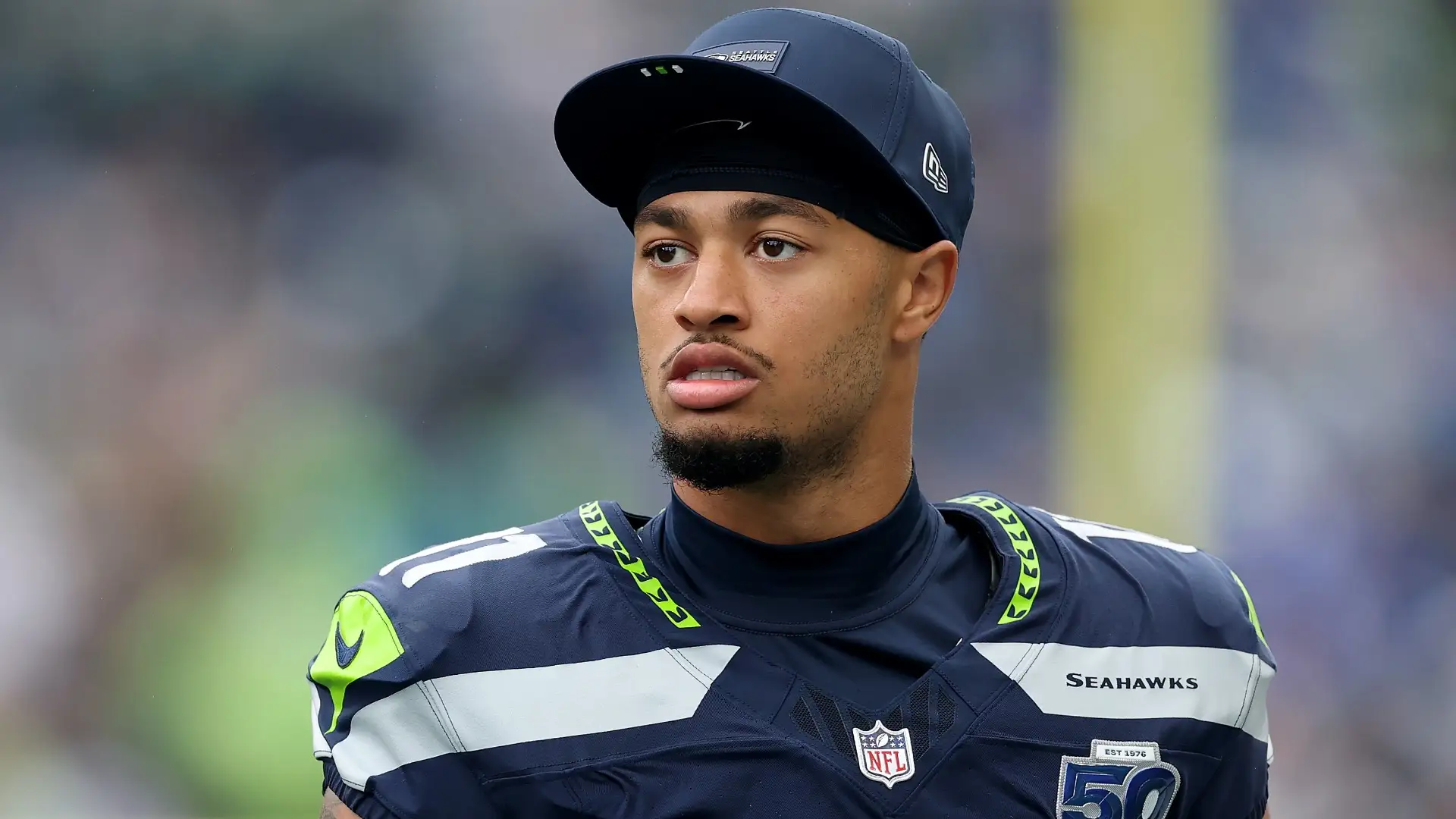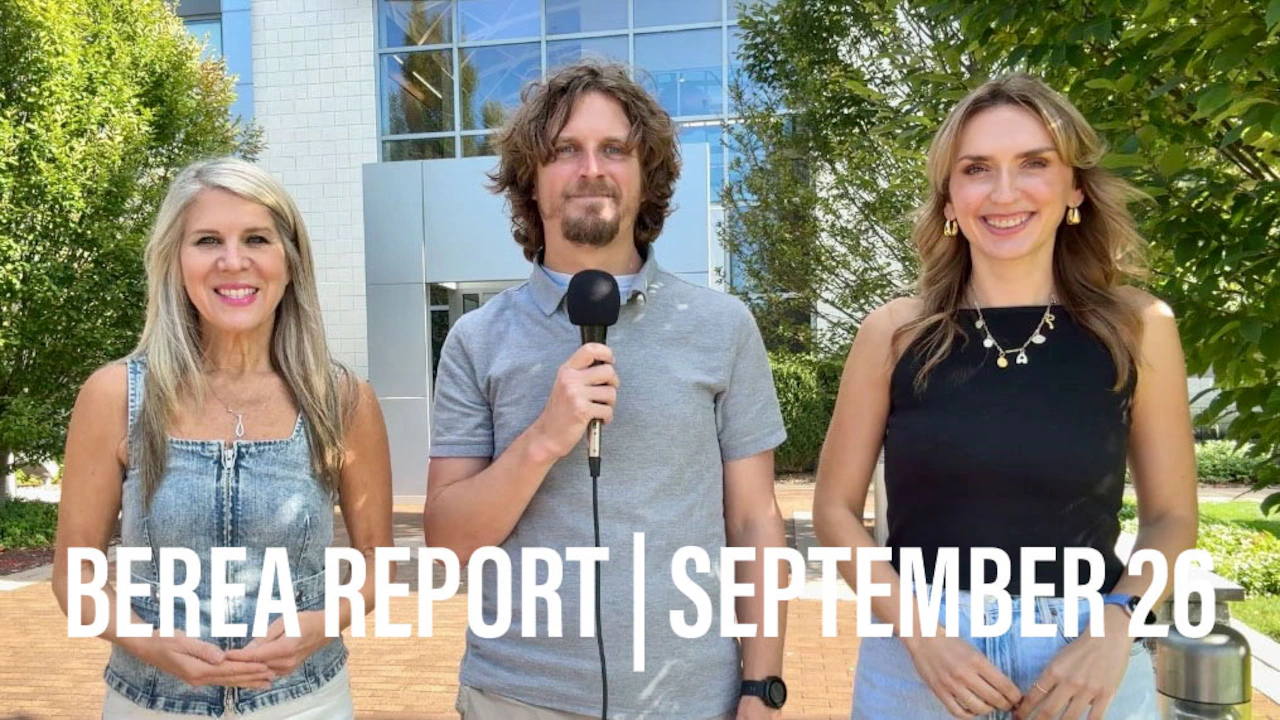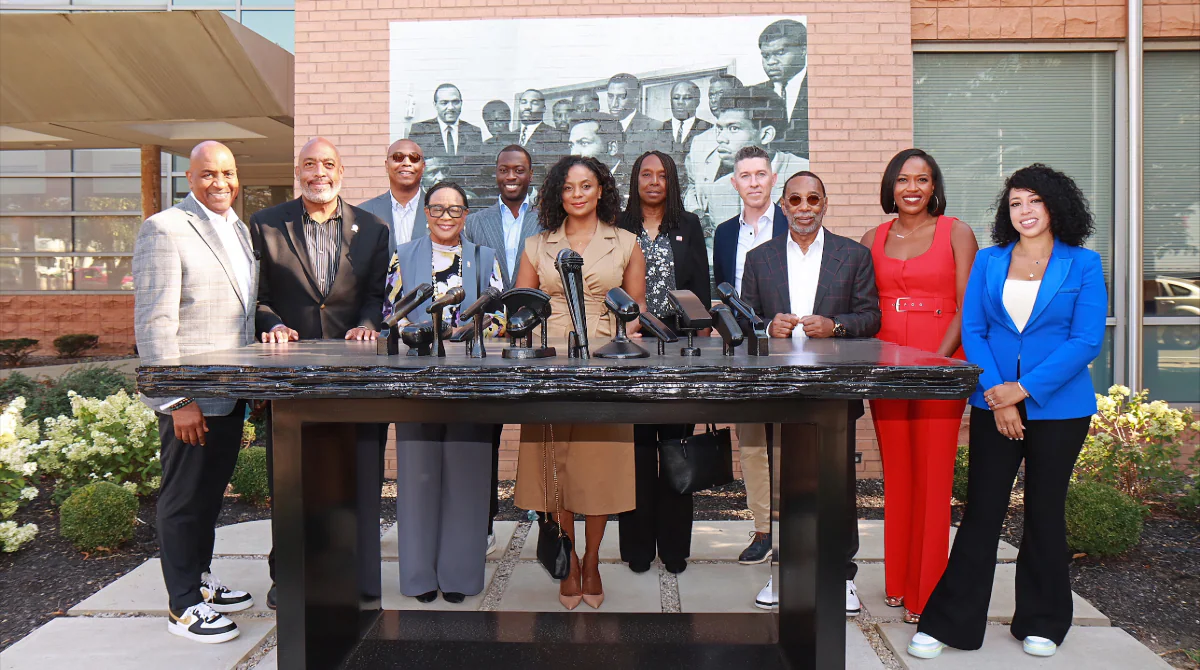
On August 7, 2025, more than 150 community leaders, sports professionals and aspiring youth advocates filed into Rocket Arena in Cleveland for “A Seat at the Table: Voices of Tomorrow.” The event, hosted by the Cavaliers and the National Basketball Social Justice Coalition (SJC), marked the latest convergence of basketball, social justice and civic engagement. It was held just miles from the site of the landmark 1967 Cleveland Summit, where a group of legendary Black athletes gathered in a historic display of athlete activism.
Rooted in the Summit’s enduring legacy, the program highlighted the SJC’s fifth anniversary and announced two groundbreaking initiatives: the JUMP Leadership Accelerator (JLA) and the Cleveland Cavaliers Social Impact Academy. Together, these programs aim to cultivate the next generation of changemakers, including youth affected by the justice system, at the intersection of sports, public policy and community advocacy.
“We combined these two initiatives … to create a platform for students that didn’t feel like they had a voice but are in tune with what’s happening, not only in Cleveland, but nationally,” said Kevin Clayton, Chief Impact & Equity Officer for the Cavs.
“By connecting with the NBA and JUMP, we know that we can access young adults, some [of whom] might need a second chance,” said Clayton.
Introducing the JUMP Leadership Accelerator
Formed as a partnership between the SJC, the Justice & Upward Mobility Project (JUMP) and Jobs for the Future, the Accelerator will tip off during the 2025-26 NBA season with a first cohort of up to eight young adult advocates, ages 18-25, spread across NBA markets. Each participant will split time between an NBA franchise and a local advocacy organization, gaining both corporate and grassroots experience in social justice leadership.
“Doing impact work in the basketball context is always going to be unique,” said James Cadogan, Executive Director of the SJC. “We hope that our first cohort of [JLA] leaders will get to see the possibility and potential across a breadth of industries and experiences.”
To see that possibility, look no further than Larry Miller. Currently the Chairman of the Jordan Brand Advisory Board, Miller founded JUMP to leverage his business connections to support workforce development and economic mobility for justice-impacted people. Miller, who spent several years incarcerated during his youth, considers the Accelerator program an exciting continuation of that work.
“When I was young and that age, I couldn’t even conceive of myself being in a room with NBA executives or corporate leadership,” said the former Portland Trail Blazers president. “For these kids to be able to actually be in contact with owners, players, officials from the league, that’s going to be a big deal for them.”
Participants will receive mentorship from leaders in sports, business and government, direct access to NBA executives and a competitive stipend. With the skills, networks and experiences they gain throughout the program, graduating cohorts will be positioned to launch meaningful careers in business, policy and social justice.
Cleveland at the forefront
For the Cavaliers, hosting “A Seat at the Table” was both symbolic and strategic. “I was moved by the idea of being there in Cleveland, in the spot where the [1967] Summit actually took place,” said Miller, who remembers being a teenager witnessing the legendary gathering of American Black athletes. “To be in that environment where those giants got together and showed their support for Muhammad Ali, that, to me, was an incredible feeling.”
Former Dallas Mavericks CEO Cynthia “Cynt” Marshall was also in attendance on August 7 and echoed Miller’s sentiment. “To be in Cleveland was emotional, because the day started off with us actually being at the site where the 1967 Summit was held,” said Marshall, who, in 2018, became the NBA’s first-ever Black female CEO. “It was special to know that we haven’t forgotten the significance of what happened.”
With the weight of that history as a powerful backdrop, the event provided the perfect stage to unveil the Cavs’ inaugural Social Impact Academy, a nine-month program for high school juniors and seniors in Northeast Ohio that continues the region’s legacy of combining sports with social justice and civic leadership.
Daniel Gibson, the former Cavs point guard and a panelist at the event, embodies that connection between professional sports and impact work. Having founded the nonprofit DGib Hoops in 2008 to create pathways to success for underserved youth, Gibson views programs like the JLA and Cavs Social Impact Academy as personal extensions of that mission.
“I come from a community that is desperate to be heard,” said the Houston native. “So from the beginning, when I got into the league, I always said that I was going to carry that flag and use my voice to make an impact in the community and try to inspire the next generation to feel the same way.”
For Gibson, that commitment comes with a responsibility to bring these programs to life in the communities they are designed to serve. “I’ll be standing right next to them, boots on the ground, as we continue making sure these programs are connected to the people.”
Carrying the legacy forward
As the JLA and Cavs Social Impact Academy prepare to welcome their first cohorts, the focus turns to sustaining long-term impact.
“We want to create a sense of longevity in the space,” said Cadogan. “My ultimate hope is that each of the young people who come through the Accelerator feel like they have a greater sense of agency in their [careers].”
That mission resonates with Marshall, who believes real change starts at the individual level. “Success is about sparking somebody to want to be better… and make a difference in somebody else’s life. If we impact just one person, that, to me, is success.”
Miller shares a similar vision for the JLA, seeing it as an investment in tomorrow’s leaders. “I would love to see some of the folks who come through our program actually working in senior level jobs, [either] within the NBA family or at other companies.”
“Where I see success is that folks coming through this program actually end up in decision-making roles where they can utilize the skills that they’ve learned,” said Miller. “That would be the ultimate achievement.”
